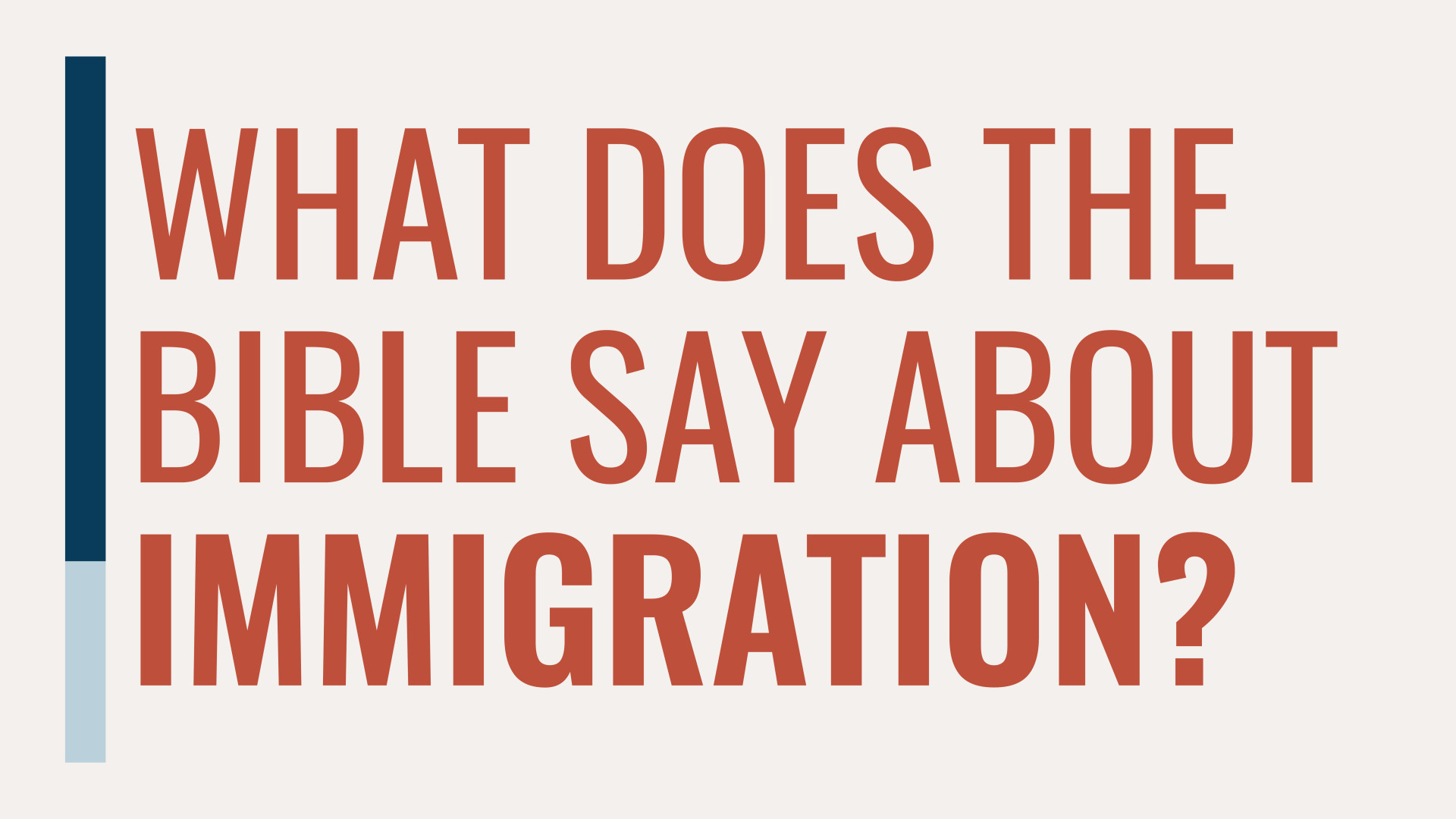Immigration may be a hot-button topic in modern politics, but it is far from being a new issue. Immigration and citizenship are regular themes throughout biblical history, and the Bible provides principles that apply both then and now.
As you weigh election decisions, here are some biblical principles on immigration to keep in mind:
- God cares about immigrants. He cares about all people, who are all made in His image (Genesis 1:27). But He is particularly quick to defend those who have less protection and power, such as immigrants, orphans, and widows (Deuteronomy 10:18-19; Psalm 146:9; Malachi 3:5).
- God’s people should treat all immigrants with love, care, and respect. They are our neighbors, whom we are to love as ourselves (Leviticus 19:33-34; Deuteronomy 10:19; Mark 12:30-31). When they have needs, we should personally provide for them (Deuteronomy 24:17-22). We should treat them kindly and fairly (Deuteronomy 27:19; Zechariah 7:9-10). We should be especially sensitive to those who have been forced to flee their home countries because of oppression or violence (Matthew 2:13-15; 1 Samuel 27:1-7).
- As Christians, we are all citizens of an eternal kingdom and sojourners in a temporary one. All believers are one in Christ Jesus (Galatians 3:28). We should welcome our fellow citizens in God’s kingdom (Ephesians 2:19; Philippians 3:20), even if they are not citizens of our earthly country. Remember that we, too, are just temporary residents of this Earth (1 Chronicles 29:15; Hebrews 11:13-16; 1 Peter 2:11).
- Laws should impartially be applied to all. The government’s role is different than our responsibility as the Church. Government has the authority to punish those who do wrong and praise those who do right, and we are all subject to that authority (1 Peter 2:13-14; Romans 13:1-2). The same laws should apply to everyone within a country’s borders, whether you were born there or are an immigrant (Exodus 12:49).
- In matters of governance, earthly borders and citizenship do matter. Earthly kingdoms are defined by borders (Numbers 34:1-12), and nations have the authority to set their own citizenship rules, rights, and processes (Acts 22:27-29). Immigration laws should be followed the same as any other law, and there are consequences when people do not follow the law (Romans 13:3-4).
In summary, God identifies with the “least of these,” including the immigrant, and reminds us that we, too, are citizens of Heaven and immigrants on this earth. As individuals within the body of Christ, we should love and care for all immigrants, regardless of how or why they entered the country. However, there is a difference in God-ordained roles between Church and government. Though the Bible does not speak to the specific ways a country should legislate immigration (the number of immigrants a country should allow in, the process for an immigrant to become a citizen, etc.), our government does have the biblical right and responsibility to secure its borders, protect its citizens, and enforce its own immigration laws.
Laws, including immigration laws, can be changed if needed. But while a law is in place, it cannot be broken without consequence. We should love the immigrant but not ignore immigration laws.
